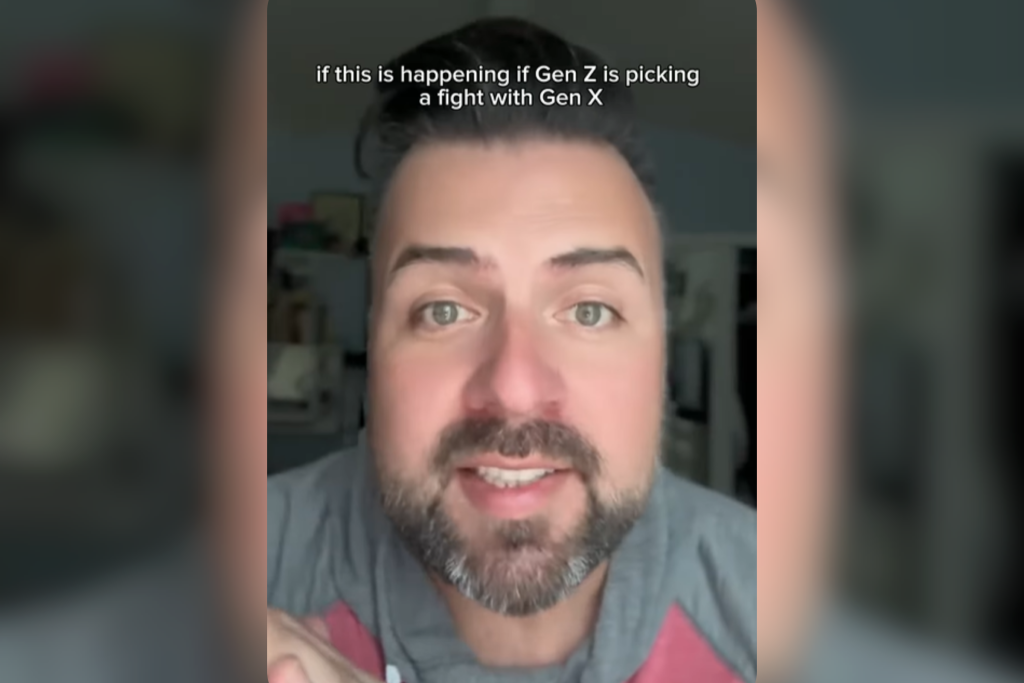In a spirited defense of Generation X, Instagram user Professor Chesko (@thespeechprof) has ignited a viral debate, challenging the notion that Gen X is the “worst generation,” a claim initially made by a Gen Z content creator. Chesko’s video has garnered millions of views and sparked a flurry of comments, with many lauding his humorous yet insightful perspective on a generation often stereotyped as apathetic and cynical. His argument hinges on the unique experiences that shaped Gen X, experiences that, in his view, forged a generation that is not only resilient but also formidable.
Chesko, a self-proclaimed “cusp millennial,” credits his proximity to Gen X for his understanding of their distinct characteristics. He points to their upbringing in the shadow of the baby boomers, suggesting that surviving such a parenting style instilled a “fear nothing” attitude. Moreover, their formative years predated the pervasive digital age, leaving them with a clean slate, free from the potential pitfalls of a documented online history. This lack of digital footprint, Chesko jokingly implies, makes them somewhat untouchable and even dangerous in a world increasingly reliant on digital information.
He paints a picture of a generation seasoned by significant historical events, including the Cold War, the fall of the Berlin Wall, the AIDS epidemic, and economic recessions. These experiences, he argues, fostered resilience, resourcefulness, and a pragmatic approach to life. While acknowledging the “cynical” label often attached to Gen X, Chesko attributes this to the turbulent times they navigated, suggesting that their cynicism is a byproduct of witnessing societal shifts and challenges that shaped their worldview. He also emphasizes the positive attributes often associated with Gen X, such as their independence and ability to balance work and life.
Chesko’s video resonated with a large audience, amassing millions of views and hundreds of thousands of likes. The comments section became a forum for shared anecdotes and affirmations of his perspective. Many commenters echoed his sentiments, highlighting Gen X’s resourcefulness and ability to thrive in both the analog and digital worlds. Some jokingly emphasized Gen X’s resilience in the face of technological dependence, suggesting that their ability to navigate a pre-internet world gives them an edge in situations where technology fails. Others pointed to Gen X’s unique position as a bridge between the analog and digital eras, comfortable with both older and newer technologies.
The viral video has sparked a broader discussion about generational stereotypes and the potential pitfalls of oversimplification. While generational labels can provide a framework for understanding shared experiences, they can also lead to inaccurate generalizations. The Pew Research Center emphasizes the importance of recognizing both the differences and the shared experiences that connect generations. Chesko’s video, while intended to be humorous, inadvertently highlights this point. His defense of Gen X focuses on the unique historical context that shaped their values and attitudes, while also acknowledging the common human experiences that transcend generational boundaries.
The popularity of Chesko’s video underscores the power of humor and relatable content in sparking online conversations. His lighthearted approach to a potentially divisive topic has fostered a sense of camaraderie and encouraged a more nuanced understanding of generational differences. The video serves as a reminder that stereotypes, while sometimes containing a kernel of truth, often fail to capture the complexity and diversity within any given generation. It also highlights the enduring fascination with generational dynamics and the ongoing search for common ground in a world increasingly fragmented by labels and categories.










